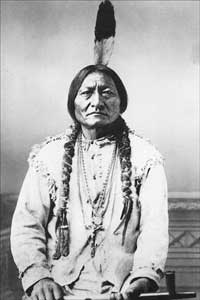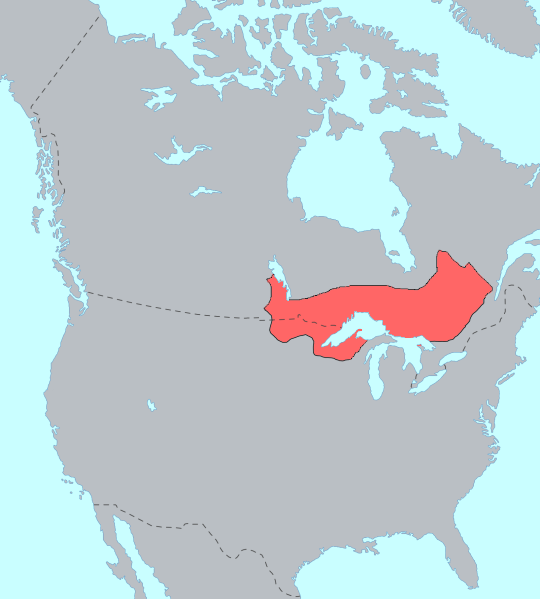Top 10 Celebrities Embracing Ojibwe Roots
The Ojibwe people, also known as the Anishinaabe, are an indigenous community from North America. They have a rich cultural heritage and a strong presence in various fields, including arts, sports, and activism. Here are ten of the most popular Ojibwe celebrities and notable individuals:
- Rita Coolidge: A Grammy Award-winning singer-songwriter and author, Coolidge has Ojibwe ancestry from her father’s side. She achieved mainstream success with hit songs like “We’re All Alone” and “Higher and Higher.”
- Graham Greene: This Ojibwe actor is known for his acclaimed performances in films such as “Dances with Wolves” and “Wind River.” Greene’s powerful performances have garnered him critical acclaim and a loyal fan base.
- Louise Erdrich: An acclaimed Ojibwe author, Erdrich has written numerous books that explore Native American culture and identity. Her notable works include “Love Medicine” and “The Round House,” which won the National Book Award for Fiction.
- Adam Beach: Known for his roles in movies like “Flags of Our Fathers” and “Smoke Signals,” Beach is a talented Ojibwe actor. He has been recognized for his contributions to the film industry and his portrayal of Native American characters.
- Winona LaDuke: A prominent Ojibwe activist and environmentalist, LaDuke has dedicated her life to fighting for indigenous rights and sustainable development. She ran as Ralph Nader’s vice presidential candidate in 1996 and 2000.
- Jordin Tootoo: Tootoo, a professional ice hockey player, became the first Inuk to play in the NHL. With Ojibwe ancestry from his mother’s side, he has also been involved in initiatives promoting mental health and suicide prevention.
- Jim Northrup: As an Ojibwe writer and poet, Northrup used his literary talents to highlight Native American experiences and challenges. His work often portrayed the daily lives and struggles of the Ojibwe people.
- Angel Haze: Haze is an Ojibwe rapper and singer who intertwines personal experiences and social issues in their music. They have received critical acclaim for their introspective lyrics and powerful performances.
- Charles Albert Bender: Known as Charles “Chief” Bender, he was a professional baseball player of Ojibwe descent. Bender played for the Philadelphia Athletics and became one of the earliest indigenous players in Major League Baseball.
- Lois Red Elk: An Ojibwe traditional storyteller and cultural educator, Red Elk worked tirelessly to preserve and share Ojibwe stories, folklore, and language. She played a vital role in passing down Ojibwe traditions to future generations.
These individuals have made significant contributions to their respective fields, shedding light on Ojibwe culture, history, and the challenges faced by indigenous communities. Their accomplishments serve as an inspiration and celebration of the Ojibwe heritage.

Most Famous Ojibwe People
Ojibwe’s Three Pinnacle Historical Inheritances
The Ojibwe community, also known as the Anishinaabe people, is a Native American tribe that resides primarily in the northern United States and southern Canada. With a rich cultural heritage that spans centuries, the Ojibwe community holds a significant place in North American history. Here are three well-known historical inheritances associated with the Ojibwe heritage:
- Language: The Ojibwe language, also known as Anishinaabemowin, is a key aspect of the Ojibwe community’s cultural identity. It is part of the Algonquian language family and is still spoken by many Ojibwe people today. This language is renowned for its intricate grammatical structure and unique vocabulary. Efforts are being made to preserve the Ojibwe language and ensure its continuation for future generations.
- Birchbark Canoes: The Ojibwe community is famous for their traditional birchbark canoes, which have played a vital role in their history and way of life. These canoes were meticulously crafted using birchbark, cedar, and spruce roots. They were not only used for transportation, but also for hunting, fishing, and trading. Today, the art of canoe making is still practiced by Ojibwe artisans, who pass down their knowledge and skills to younger generations.
- Dreamcatchers: Dreamcatchers are iconic symbols of the Ojibwe community, as they hold significant spiritual and cultural meaning. Traditionally, dreamcatchers were made from a hoop with a woven net or web in the center, adorned with feathers and beads. It is believed that dreamcatchers capture negative energy and bad dreams while allowing positive dreams to pass through. They are often hung above beds to protect individuals from nightmares and promote peaceful sleep.
These three historical inheritances only scratch the surface of the Ojibwe community’s rich cultural heritage. From storytelling to traditional ceremonies, the Ojibwe people continue to preserve and celebrate their traditions, passing them down from generation to generation.
Factsheet About Ojibwe People
| Demographics | Distribution |
|---|---|
| Population | Unknown |
| Official Language | English, Ojibwe |
| Religion | Traditional Indigenous, Christianity |
| Location | Primarily in the United States and Canada |
| States with significant population | Minnesota |
| Provinces with significant population | Ontario, Manitoba |
| Reservation | Fond du Lac Reservation, Red Lake Indian Reservation, Lac Courte Oreilles Reservation, etc. |

The Ancient Heritage of Ojibwe Ethnic Groups
References to the Ojibwe Ethnic Group
The Ojibwe, also known as the Ojibwa or Chippewa, are an indigenous ethnic group in North America. They reside primarily in the United States and Canada, with the largest population residing in the Great Lakes region. The Ojibwe have a rich history and culture, with various resources available for those looking to learn more about this fascinating group.
If you are interested in digging deeper into the Ojibwe ethnic group, here are some references and resources to explore:
- Books: There are several books available that provide historical and cultural information about the Ojibwe. Some recommended titles include “The Ojibwa: People of Forests and Prairies” by Michael G. Johnson, “Ojibwe in Minnesota” by Anton Treuer, and “The Mishomis Book: The Voice of the Ojibway” by Edward Benton-Banai.
- Online Resources: The internet offers a plethora of resources for learning about the Ojibwe. Websites such as the Ojibwe People’s Dictionary (ojibwe.lib.umn.edu) and the Ojibwe Cultural Foundation (ojibwe.ca) provide information on language, history, and cultural traditions. The Smithsonian National Museum of the American Indian (americanindian.si.edu) also has online exhibits dedicated to the Ojibwe.
- Tribal Websites: Many Ojibwe tribes have their own websites that offer insights into their specific cultural heritage. The Red Lake Nation (redlakenation.org), Fond du Lac Band of Lake Superior Chippewa (fdlrez.com), and Mille Lacs Band of Ojibwe (millelacsband.com) are examples of tribes with informative websites.
- Museums and Cultural Centers: Visiting museums and cultural centers can provide an immersive experience in Ojibwe culture. The Ziibiwing Center of Anishinabe Culture & Lifeways in Mount Pleasant, Michigan, and the Mille Lacs Indian Museum in Onamia, Minnesota, are two notable locations that offer exhibits, programs, and events focused on the Ojibwe.
- Documentaries and Films: Watching documentaries and films can provide visual and storytelling insights into the Ojibwe. Some recommended options include the documentary “The Ojibwe: An Introduction” directed by Tim Roufs and the film “Smoke Signals” directed by Chris Eyre.
Exploring these references and resources will contribute to a deeper understanding of the Ojibwe ethnic group’s history, culture, and traditions. Whether it’s through reading books, browsing online resources, visiting tribal websites, exploring museums, or watching documentaries, there are various ways to learn and appreciate the rich heritage of the Ojibwe.
Explore other famous people with Bamileke, Kafwe Twa and Mehri roots, showcasing the diversity of ethnic backgrounds. Delving into the lives of notable figures from various ethnic backgrounds associated with these Ojibwe roots reveals the intricate web of connections between global cultures and their significant contributions to the world.
Join channel telegram websitekami.com agar tidak ketinggalan berita loker terbaru lainnya
Join now
